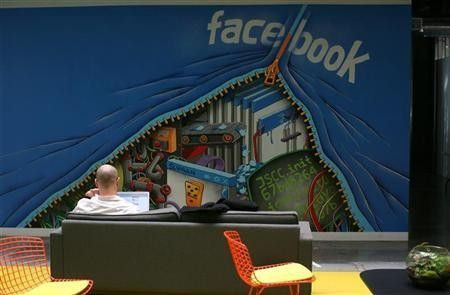Stock Rater Sees Facebook On Par With Tech Titans

Facebook Inc. (NYSE: FB) hasn't even begun trading as a public company but a New York firm with an unusual risk-analysis model rates the social networking giant's shares as highly as those of Intel Corp. (NYSE: INTC), Apple Inc. (Nasdaq: AAPL), Microsoft Corp. (Nasdaq: MSFT) and Google Inc. (Nasdaq: GOOG).
The reason, said Rapid Ratings Chief Executive James Gellert, is that his firm's econometric models are solid, meet 62 different ratios for soundness and appear financially stable.
Facebook, which claimed 845 million users when it registed its initial public offering with the U.S. Securities and Exchange Commission on Feb. 1, has been rated 74 on a scale from 1 to 100, Gellert said.
In contrast, Rapid Ratings currently rates Intel, the world's leading maker of semiconductors, a 74; Apple is a 77, Google a 70 and Microsoft a 76.
Microsoft, a Rapid Ratings client, is a minority investor in Facebook but Gellert said that didn't generate any bias. The privately held ratings firm competes against the likes of Moody's Corp. (NYSE: MCO), McGraw-Hill's (NYSE: MHP) Standard & Poor's unit and other raters.
No Human Factors
Gellert said Rapid Ratings applied its econometric model to Facebook as it would for any other private or public company. Unlike other firms, its analysts don't visit management or rely on human factors, even for Facebook.
Capital efficiency is what we look at, said Gellert, 43, an Asian-studies major who gravitated to Wall Street. Rapid Ratings depends on models first developed by Canadian economist Patrick Caragata, a veteran of government agencies in Canada, New Zealand and Australia as well as a former senior economist for Toronto-Dominion Bank.
Gellert acknowledged surprise that Facebook's revenue was only $3.7 billion last year (net income was $1 billion). He said growth from 2010 had been impressive, as had the company's ability to raise capital even when it wasn't required.
This month, Facebook filed an amended IPO registration with the SEC announcing it had doubled its credit line to $5 billion, with funds from 31 banks. The company also added a $3 billion bridge loan from J.P. Morgan Chase & Co. (NYSE: JPM) and Morgan Stanley (NYSE: MS).
Future Ratings
Gellert said Rapid Ratings will examine each new financial report Facebook publishes before the IPO as well as after, then run it through the same rigorous analysis.
Our methods won't change, he said. Facebook will get permanent coverage.
Gellert, by the way, is a Facebook user.
Shares of Facebook traded Tuesday at $41 on the private SharesPost exchange, in a block of 125,000. That's about the same price CEO Mark Zuckerberg would like to see in the IPO if the company raises $5 billion for a total valuation of $100 billion.
© Copyright IBTimes 2025. All rights reserved.






















